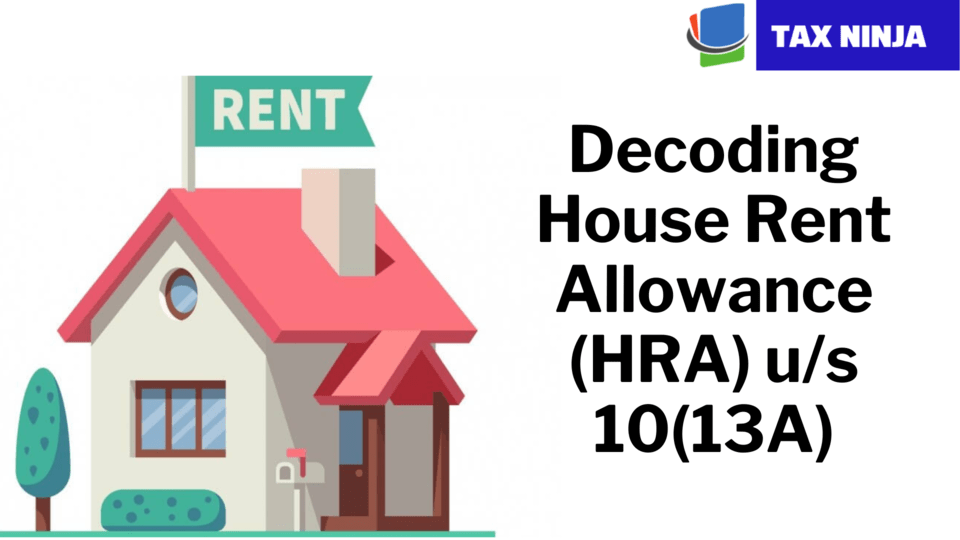

QWhat is HRA?
AHouse Rent Allowance (HRA) is the allowance paid as a part of salary by an employer to their employee as a compensation for rented accommodation-related expenses incurred by the employee.
QSo, why an amount that is just a reimbursement of rent has tax implications?
AAs per section 10(13A) of Income-tax Act, 1961, the amount of HRA is exempt (subject to certain requirements discussed below). But the catch is that HRA can be fully or partially exempt from tax.
But you may wonder as what made IT Department to limit the exemption, when it was just an reimbursement of rent paid by employee? The Income-tax Department restricted the exemption after it noticed that several salaried assessee are reducing the tax liability by reducing the salary component and instead drawing more amount in the name of rent allowance.
QWhat makes me eligible to claim exemption?
AIn order to claim exemption under section 10(13A), you must fulfill the following conditions :
QHow to calculate HRA exemption?
AAs per Rule 2A, the maximum amount that can be claimed as exemption is least of the following three amounts:
Excess amount of HRA (not eligible for exemption) is taxable and is treated as part of your taxable salary.
QWhat to include as Salary in HRA Calculation?
AIt includes the following components:
No other allowances are taken into consideration for HRA deduction.
QWhat documents are required in order to claim HRA exemption?
AThe following documents are required in order to claim HRA exemption :
QCan a self employed claim an HRA exemption?
ANo, a self employed cannot claim an HRA exemption, however you might be eligible to claim the benefit under Section 80GG of the Income-tax Act, 1961.
QCan I claim HRA if I stay at my parents house?
AYes, you can claim HRA if you reside at your parents house, provided that you may rent to your parents after entering into a rental agreement. However, your parents need to show this as a rental income in their income tax returns.
QCan I claim HRA without a rent receipt?
AYes, if your HRA is up to Rs 3,000 per month, you can claim HRA without rent receipts. But, you can not claim HRA without rent receipts when your HRA exceeds Rs 3,000.
QWhat to do if my landlord doesn't share his PAN details?
AIn order to claim HRA exemption where the rent paid is more than Rs. 1,00,000 a year, you need to furnish the PAN details of landlord.
QWhat to do if I forgot to submit requisite documents for claiming HRA exemption to my employer?
ANot to worry as you can still claim HRA exemption while filing your income tax return.
QCan I claim HRA as well as Home Loan deductions?
AYes, you can claim both since neither of them has the impact on the other deduction. HRA can be claimed if you live in a rented property and if you are paying home loan, you can simultaneously claim deductions related to home loan.